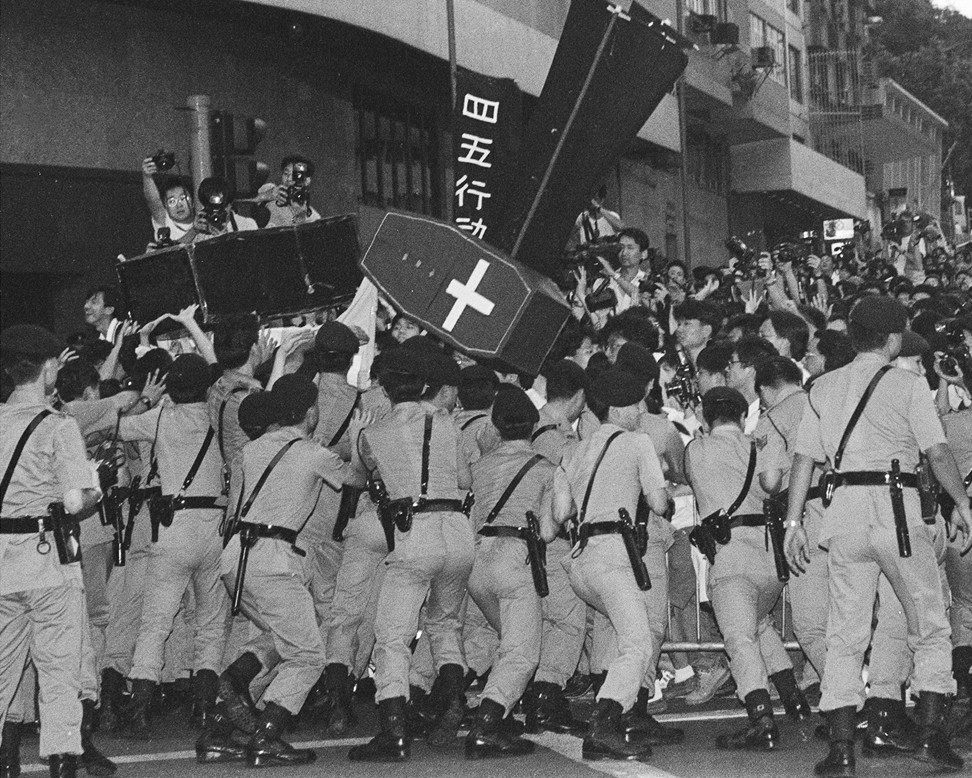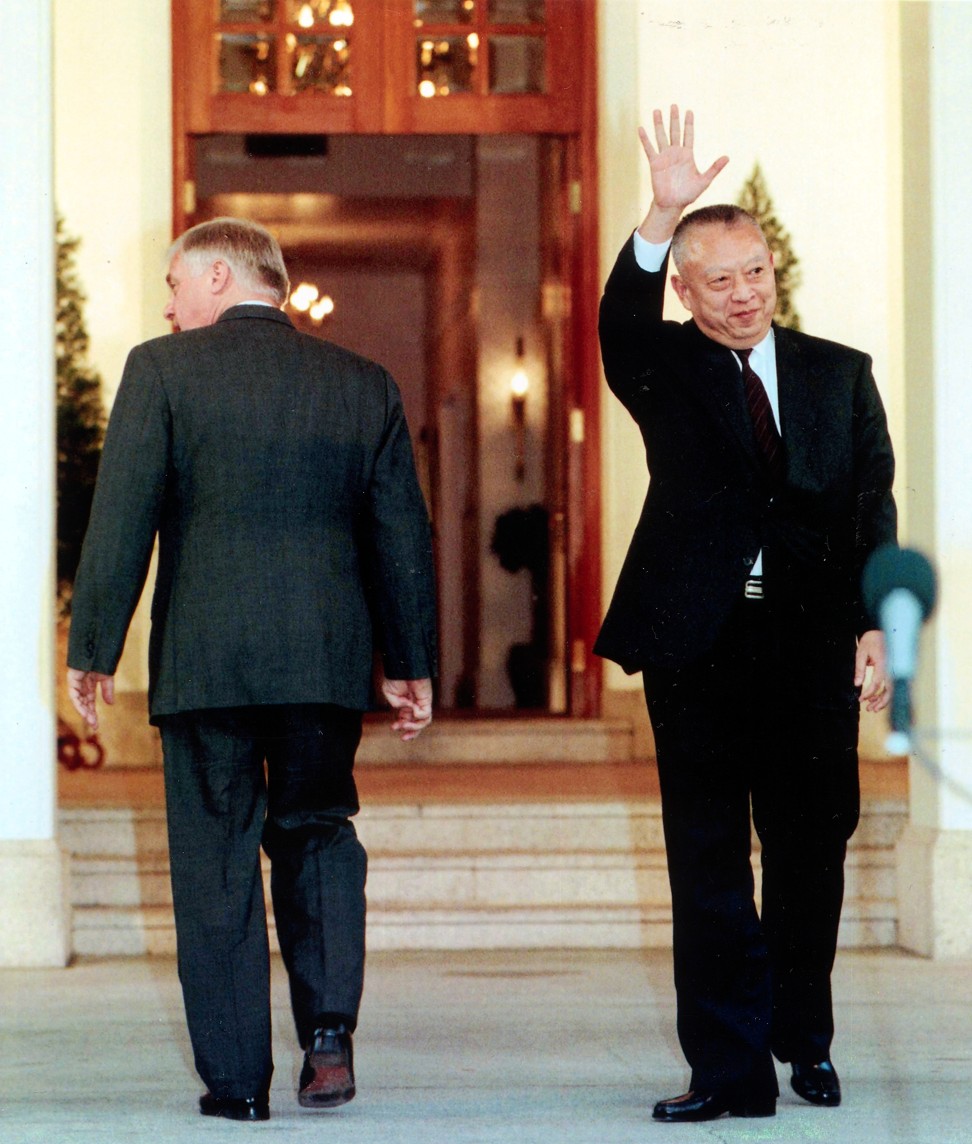
It is in Beijing’s interests to ensure Hong Kong doesn’t wilt and fade
Frank Ching says the Tung administration marked the high point of Hong Kong autonomy, but even with the erosion of trust and Beijing’s recent hardline statements, Chinese leaders don’t want Hong Kong to fade under Chinese sovereignty

I had opened The Wall Street Journal bureau in China in 1979, when China and the US established diplomatic relations. It was a heady time. Anything about China was news. But the story that mattered most to me was Hong Kong’s future. Several months before Thatcher’s visit, a source told me that China had “put on the agenda” the return of Hong Kong.
Though I had spent much of the 1960s and 1970s in the US, I never lost my attachment to Hong Kong. I returned in the mid-1970s and, in 1976, began working for the Asian Wall Street Journal. At the same time, I was also involved with a personal project: setting up the Hong Kong Observers, a pressure group whose aim was to press the government to be responsive to the needs of the people.
Robin Hutcheon, then editor of the Post, offered the Observers a fortnightly column. The articles were primarily written by me. We wanted a dialogue with the government. This wasn’t easy. For example, when we published an article on localisation of the civil service in March 1977 and asked Alan Scott, secretary for the civil service, for comment, his reply was an eye-opener. “Are you prepared,” he wrote, “to agree that if I comment publicly, photographs of the ‘Hong Kong Observers’ be published with such comment, with sufficient details to establish your bona fides as responsible people with a relevant interest in these matters?” Today, it is unimaginable that any official would adopt such a supercilious attitude. The right to question the government is unquestioned.
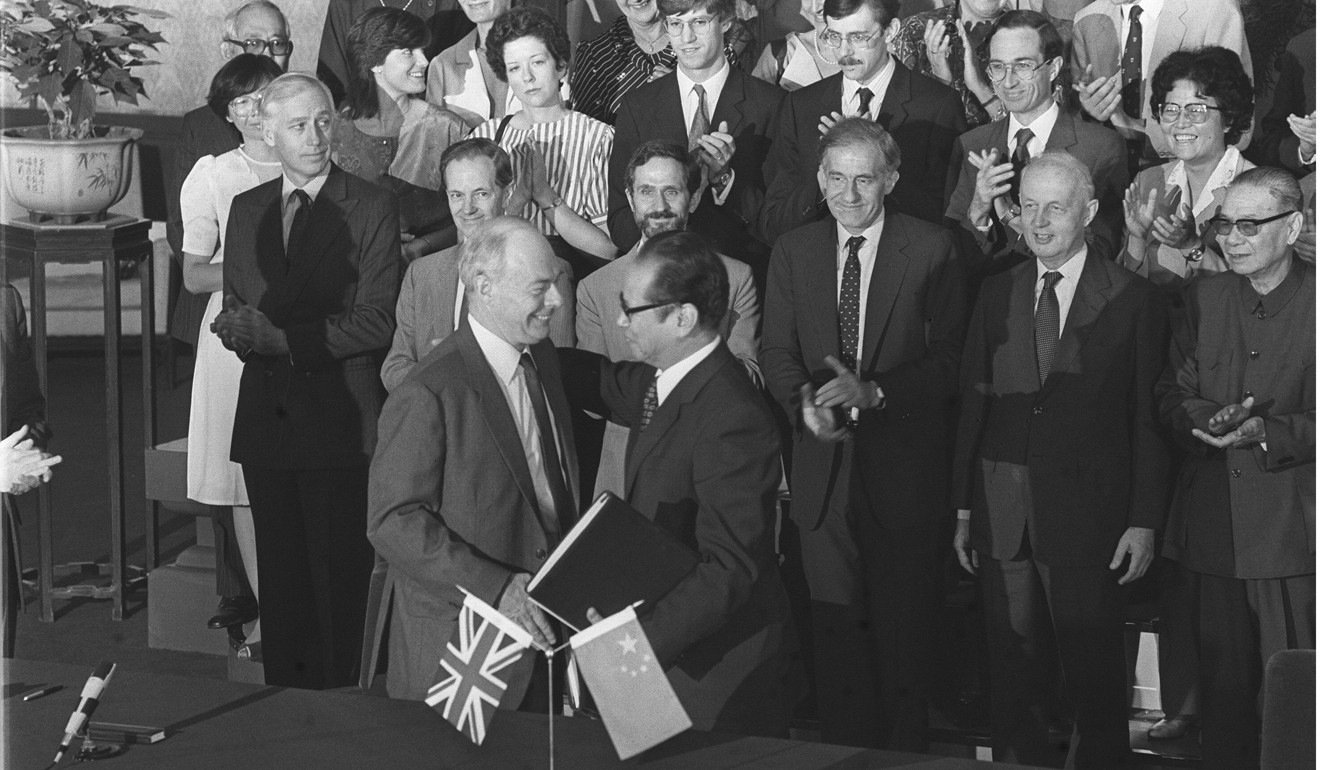
Moving to Beijing gave me a front-row view of events related to the colony’s future. In September 1984, the Joint Declaration, under which Britain would return Hong Kong to China, was initialled. China pledged to maintain the lifestyle, rights and freedoms in Hong Kong under the “one country, two systems” concept. To make the agreement palatable, Britain announced that it would start holding indirect elections in 1985. Until then, all legislators were appointed.
When the British announced they would hold direct elections in 1988, China was quiet. But once the agreement was signed, Beijing vociferously opposed the elections, saying British decisions must “converge” with China’s plans. Since those weren’t known, Britain couldn’t make changes. This Chinese strategy of raising expectations, partly through silence, then adopting a hard line led eventually to charges of broken promises, as China made pledges of “Hong Kong people running Hong Kong”, “50 years of no change”, and democracy.
Hong Kong is still paying the political price for British colonial rule
As it was, the colony was soon rocked by the 1989 Tiananmen Square massacre, which brought panic to Hong Kong. In the end, it triggered an exodus of about a fifth of its population.
I was convinced that China’s plan was to allow Hong Kong to remain largely unchanged
20 years on: did these predictions for Hong Kong come true?
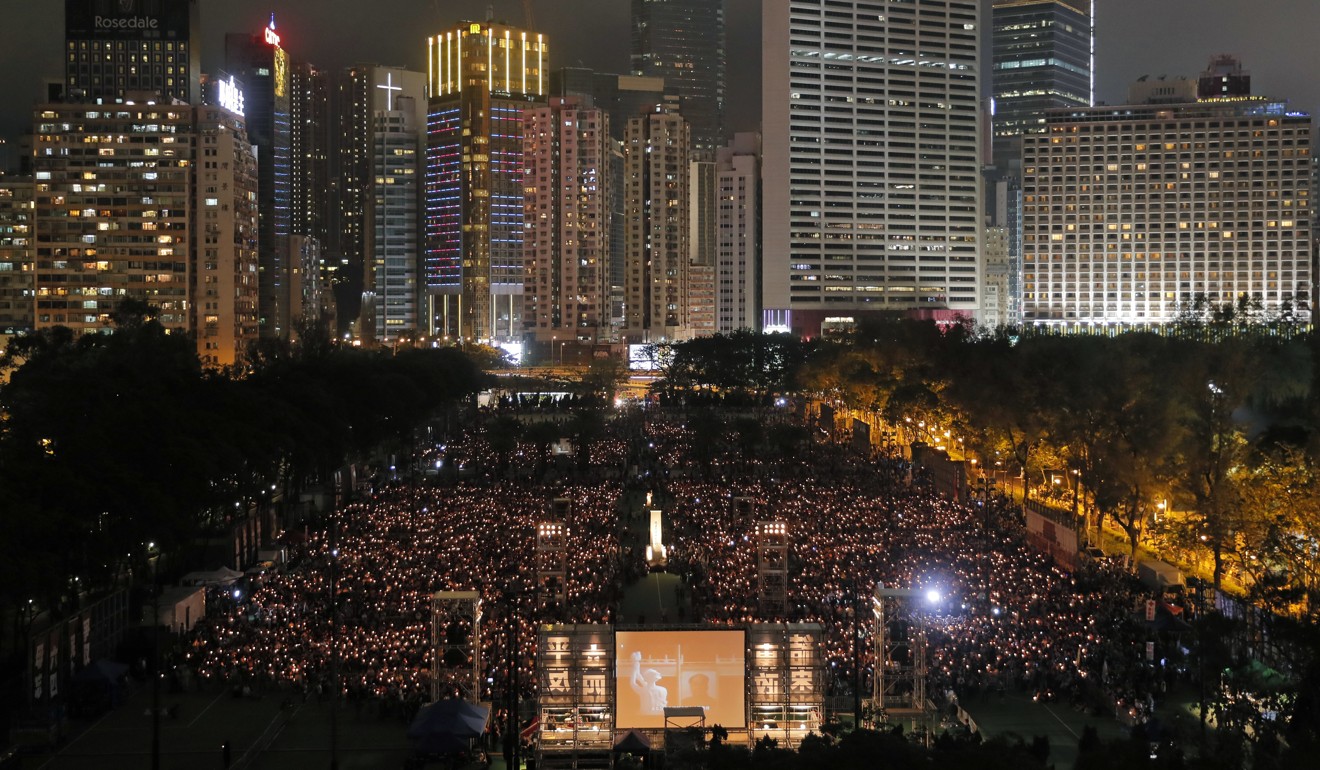
Indeed, after the handover, nothing drastic happened. No one was thrown into prison, newspapers weren’t shut down and Chinese troops did not patrol the streets. In fact, they were invisible, as they still are. Every June 4, a candlelight vigil to commemorate the Tiananmen massacre is held – something that few would have believed possible 20 years ago.
The central government can stub out Hong Kong like a cigarette and the only way ‘one country, two systems’ can work is if China restrains itself
The fact that more than a million fearful people were driven overseas before 1997 and substantial numbers returned afterwards suggested renewed confidence, bolstered by foreign passports. Disturbingly, talk of immigration is again in the air as many feel the ground shifting under their feet as China shifts its emphasis from “two systems” to “one country”. Today, I am deeply unhappy that Beijing is squeezing Hong Kong politically and narrowing the scope of its autonomy, emphasising its own “comprehensive jurisdiction”.
This crackdown is attributed largely to irresponsible statements about Hong Kong independence by some youngsters. Everyone knows independence is impossible, but Beijing seems determined to crack down on Hong Kong, just as it has cracked down on Tibetan and Xinjiang “separatists” even though there is not the slightest danger of China being split asunder. This is a dangerous situation and, if Beijing should view Hong Kong through a separatist lens, then our troubles will never end.
The central government can stub out Hong Kong like a cigarette and the only way “one country, two systems” can work is if China restrains itself. But, of course, the restraint isn’t unconditional. Beijing doesn’t want Hong Kong to be a base for subversion.
The first term of chief executive Tung Chee-hwa marked the high point of Hong Kong’s autonomy. The Chinese government trusted Tung implicitly and believed he was running Hong Kong well. The liaison office – then still called the Xinhua News Agency – never said a word in public, except when Chen Shui-bian was elected in Taiwan, when it warned Hong Kong journalists not to promote Taiwan independence views and the business community to shun Taiwan independence businessmen.
This Chinese self-restraint rapidly changed after July 2003
This Chinese self-restraint rapidly changed after July 2003, when 500,000 people marched to protest against proposed Article 23 legislation. Since then, Beijing has steadily expanded its involvement in Hong Kong and the liaison office nowadays talks openly about its involvement in Hong Kong affairs, including in elections.
Statements emanating from Beijing immediately before the last chief executive election were disturbing, such as the declaration that it might not appoint the winning candidate if that person didn’t have its trust. Hopefully, Beijing will adjust its position.
‘One country, two systems’ for Hong Kong could be scrapped if it is used to confront Beijing, official says
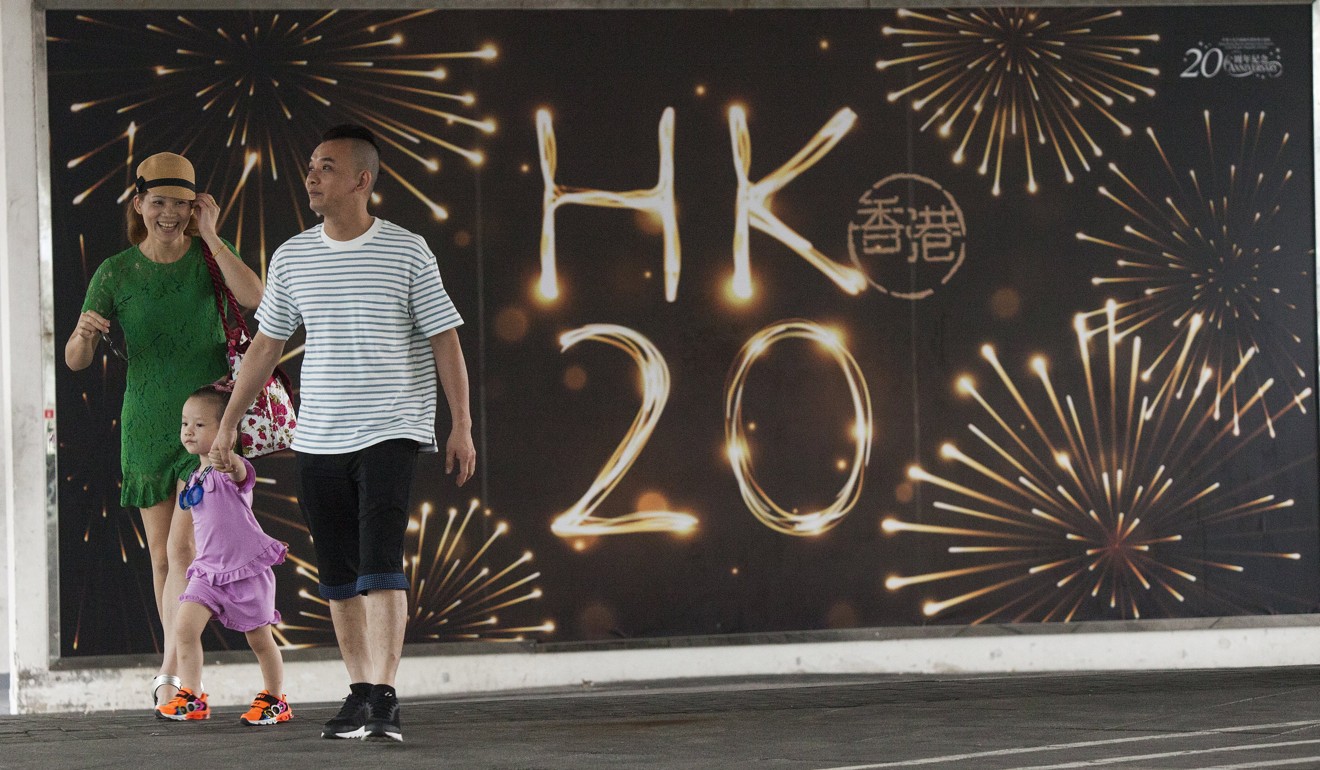
It’s time to resolve conflicts over ‘one country, two systems’
Such hardline statements and actions have led some people to speculate that Beijing is preparing Hong Kong for “one country, one system”. I have a somewhat contrarian view. I think that such acts are paving the way for Hong Kong’s future beyond 2047, with the indefinite continuation of “one country, two systems”. Of course, its meaning will be defined by Beijing. The autonomy allowed will be more limited. But China doesn’t want the world to see Hong Kong, a roaring success as a British colony, wilt and fade under Chinese sovereignty. Besides, Hong Kong is still an important asset for China. This is particularly true in its role as an international financial centre, the only one China has and is likely to have for a very long time. Beijing knows there are certain prerequisites for a financial centre to flourish. Top of the list is the rule of law, as well as the free flow of information. So it is in China’s interests, not just Hong Kong’s, to see these remain in place, now and in the future.
Frank Ching is a Hong Kong-based writer and commentator. [email protected]. Follow him on Twitter: @FrankChing1


